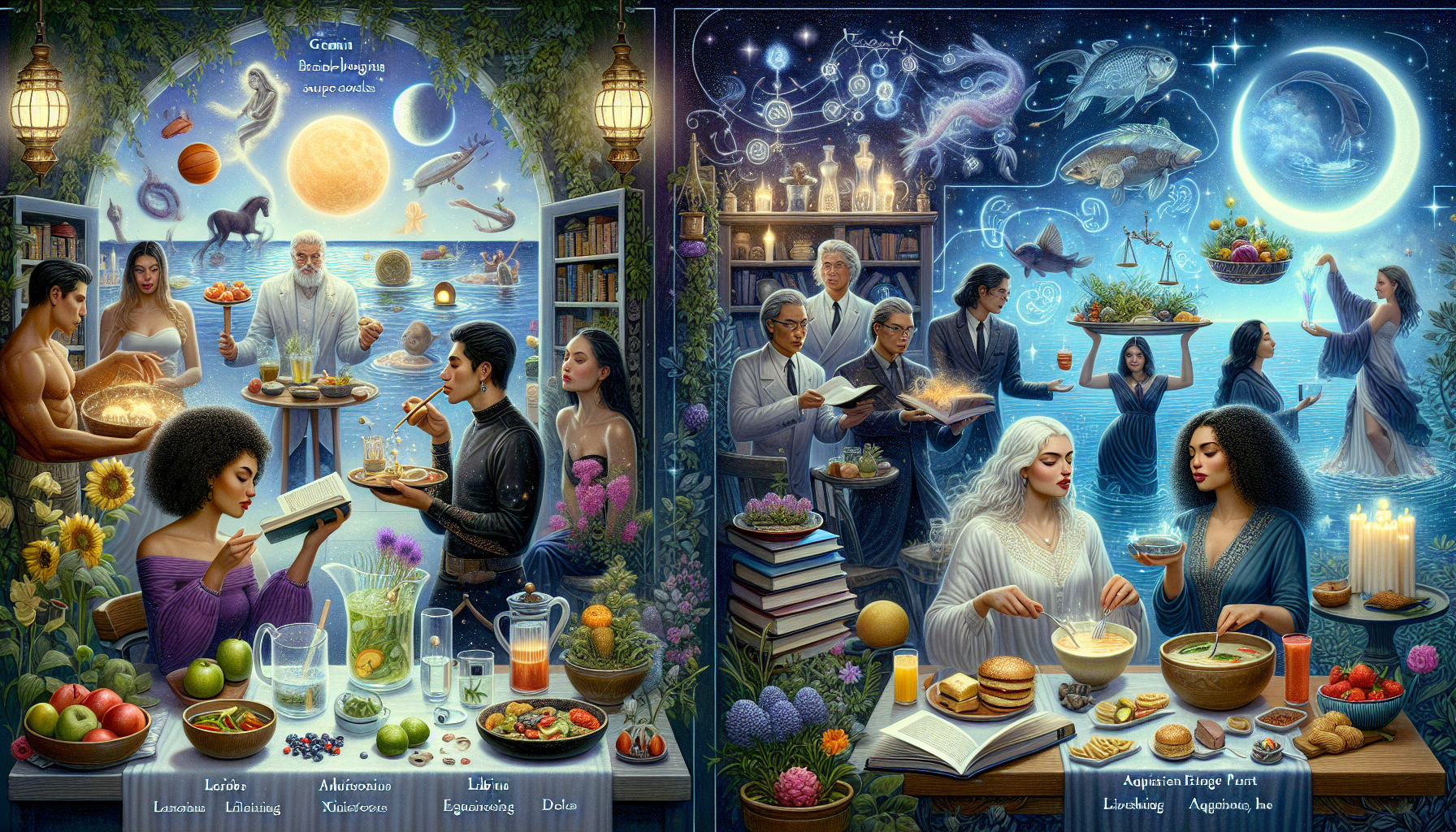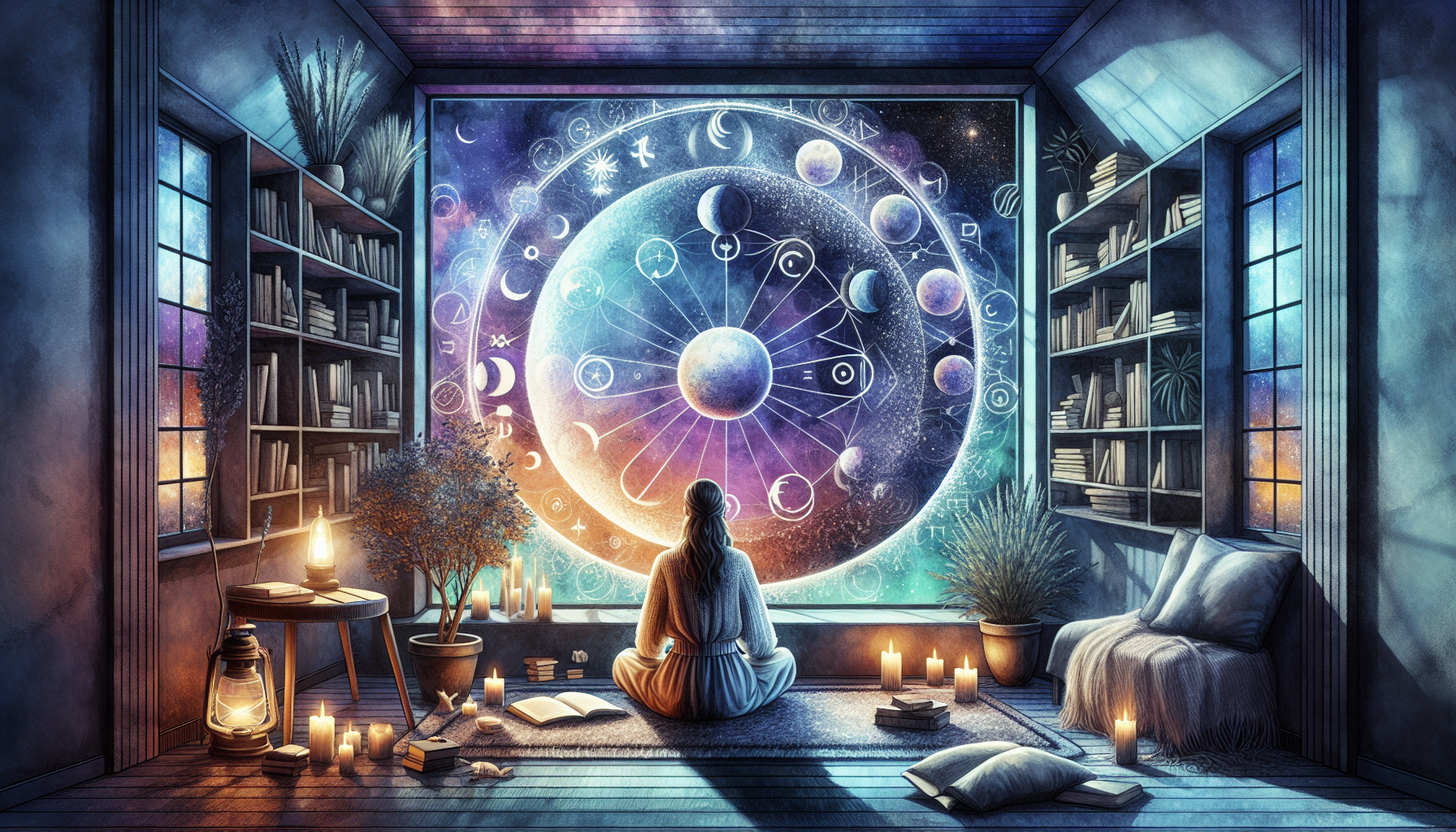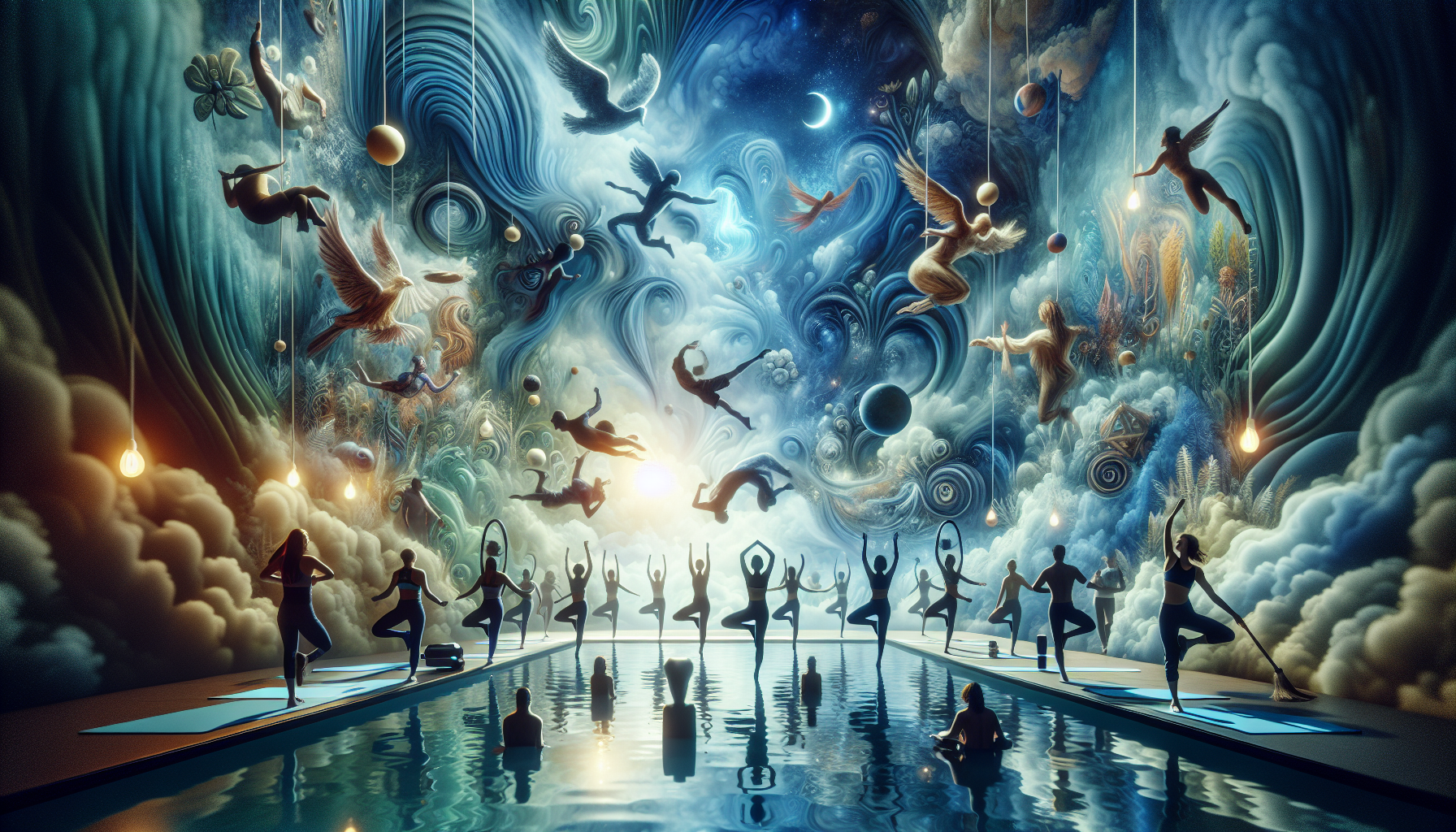Exploring the mystique of the lunar cycles and sleep reveals a fascinating intersection between celestial movements and human rest patterns. This article delves into the scientific and anecdotal evidence behind how the phases of the moon, from the enigmatic new moon to the radiant full moon, impact our slumber. With a blend of research findings, personal experiences, and practical tips, we offer insights on optimizing sleep quality throughout the lunar cycle, making peace with the moon’s influence on our nightly rest.

The Moon’s Phases and Your Zzz’s
Ever noticed how the lunar cycle might be playing a sneaky role in the way you Sleep? Yes, the connection between lunar cycles and sleep quality is not just a piece of folklore; it’s a subject of scientific study and personal anecdotes alike. This intriguing phenomenon invites us to closer inspect how different phases of the moon influence our slumber.
Lunar Cycles Explained
The moon waxes and wanes through several phases in a regular cycle lasting about 29.5 days. These phases include the new moon, where the moon is not visible from Earth, waxing phases leading up to the Full moon, where the moon is fully illuminated, and waning phases as it returns to another new moon. Each phase has its unique beauty and, perhaps, its special influence on our sleep patterns.
Scientific Insights into Lunar Influences
Research has begun to shed light on how these lunar cycles and sleep are connected. For instance, one study finds that during the full moon, individuals might take longer to fall asleep and experience a decrease in sleep quality compared to other phases. It’s fascinating, isn’t it? Moreover, though the reasons behind these effects are still under investigation, it’s hypothesized that natural light from the moon or even gravitational pulls could contribute to these variations in sleep.
- Increased sleep latency during the full moon
- Decreased sleep duration in the days surrounding the full moon
- Varying effects on REM sleep, depending on the study
Moreover, it’s not just about the numbers. Many people report feeling more restless or finding it harder to fall asleep when the moon is at its brightest. While scientific evidence is growing, these personal anecdotes resonate with the experience of many, highlighting a connection that deserves more exploration.
How to Align Your Sleep With the Lunar Cycle
Understanding the lunar cycle’s potential impact on sleep can empower us to improve our sleep hygiene. While we can’t change the moon’s phases, we can adjust our habits. For example, using blackout curtains during brighter nights or engaging in relaxation techniques can help mitigate any disruptions to our sleep patterns. Additionally, maintaining a consistent sleep schedule and creating the right environment for sleep are vital steps in engineering a restful night, regardless of the moon’s phase.
The correlation between lunar cycles and sleep uncovers an intriguing aspect of our natural world—one that appeals to both our sense of wonder and our quest for good health. By tuning into the moon’s rhythm, we might find ourselves sleeping more soundly, embracing the night with tranquility and ease.

The Full Moon Effect – Myth or Reality?
The full moon has captivated human imagination for centuries, often believed to influence sleep among its many mystical qualities. But is there truth behind these sleepless nights attributed to the full moon, or is it all just folklore? Let’s dive into the intriguing interplay between lunar cycles and sleep quality during the full moon phase, exploring what science and personal experiences have to say.
Exploring Historical and Cultural References
The full moon’s impact on sleep isn’t a new notion. Various cultures and historical texts have long referenced the full moon’s ability to disrupt sleep and enhance nocturnal activities. From ancient folklore to modern anecdotes, the belief in the full moon’s effect on human behavior and sleep patterns persists. Yet, it begs the question, what do recent studies and scientific research reveal about this age-old belief?
Unveiling the Science Behind the Full Moon Sleep Phenomenon
Recent studies have begun to shine a light on the relationship between the full moon and sleep quality. Some research indicates that during the full moon phase, individuals may experience reduced sleep quality, finding it more challenging to fall asleep and experiencing shorter sleep duration. These findings suggest that the full moon might indeed affect our slumber, but how?
Two main theories emerge: the increased brightness during a full moon night and the potential gravitational effects similar to how the moon influences the tides. However, the exact mechanisms remain a topic of ongoing investigation and debate among scientists and sleep researchers.
- Reduced sleep quality during the full moon phase
- Increased time to fall asleep and changes to sleep patterns
- Potential influences of natural light and gravitational pull
Embracing the Moonlight and Ensuring Restful Sleep
So, how can we mitigate the full moon’s potential disruptions to our sleep? While we cannot influence the lunar cycle, we can adapt our sleep environment and habits. Employing blackout curtains to reduce natural light exposure and maintaining a consistent bedtime routine are practical strategies. Furthermore, engaging in relaxation techniques before bed might also help counteract any heightened sensitivity to the full moon’s effects, promoting better overall sleep quality.
In conclusion, while the full moon’s impact on sleep remains a topic of fascination and ongoing research, understanding its potential effects empowers us to take proactive steps towards achieving restful, uninterrupted sleep. Whether you’re a believer in the full moon’s mystique or a skeptic, paying attention to your sleep environment during different lunar phases could be the key to unlocking a better night’s sleep.

Tips for Harmonious Slumber Throughout the Lunar Cycle
The lunar cycle, with its mysterious phases from the new moon to the full moon, has long been believed to influence the quality of our sleep. In this intriguing exploration of lunar cycles and sleep, we uncover practical tips to enhance your slumber, regardless of the moon’s phase. Embracing these strategies can lead to a more harmonious and restful night.
Creating a Restful Sleep Environment
To mitigate the potential disruptions caused by the lunar cycle, especially during the brighter phases like the full moon, focus on creating an environment conducive to sleep. Use blackout curtains to minimize moonlight intrusion and maintain a comfortable, cool room temperature. Ensuring your sleeping area is as dark and quiet as possible can significantly enhance your sleep quality.
Maintaining a Consistent Sleep Schedule
One of the most effective ways to improve your sleep, regardless of the lunar cycle, is to adhere to a consistent sleep schedule. Going to bed and waking up at the same time every day helps regulate your body’s internal clock, making it easier to fall asleep and wake up feeling refreshed. Even on weekends, try to keep your sleep schedule similar to your weekday routine for the best results.
- Use blackout curtains to block out moonlight
- Keep your room cool and comfortable
- Stick to a consistent bedtime and wake-up time
Embracing Relaxation Techniques
In addition to tweaking your environment and schedule, incorporating relaxation techniques into your bedtime routine can significantly impact your ability to fall asleep swiftly. Practices such as meditation, deep breathing exercises, and gentle yoga can calm your mind and prepare your body for sleep. Consider creating a pre-sleep ritual that includes one or more of these techniques to Signal to your body that it’s time to wind down.
By integrating these tips into your nightly routine, you’ll be better equipped to navigate the changes in your sleep patterns that may come with varying lunar phases. Remember, achieving restful sleep is a holistic process that combines environmental adjustments, schedule consistency, and relaxation practices. Now, let’s embrace the moon’s rhythm and journey toward a more serene and restful night’s sleep.
Lunar cycles and sleep share a complex relationship that has fascinated humans for generations. By exploring the scientific research, personal experiences, and practical advice within this article, readers can gain a deeper understanding of how the moon’s phases might influence their nightly rest. Whether you’re seeking to improve your sleep quality or simply curious about the moon’s impact, this guide offers valuable insights into achieving a harmonious slumber throughout the lunar cycle. Ready to test your knowledge? Scroll down for a 10-question quiz that will challenge and reinforce what you’ve learned about the lunar cycles and sleep.







